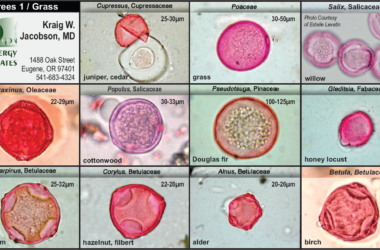The World Athletics Championships in Lane County, July 15-24, will feature some of the planet’s greatest track athletes competing at the University of Oregon’s Hayward Field, with tens of thousands of expected attendees coming from across the country and the world.
For scientists who track the spread of diseases, the event also offers a perfect real-time laboratory for monitoring viruses in the sewage, including SARS-CoV-2, the virus that causes COVID-19.
During the event, the Oregon Health Authority, in collaboration with Lane County Public Health and its university research partners, will share daily results from special sewage monitoring in Eugene. Testing will be performed for COVID-19 and other viruses of interest, including influenza, hepatitis A, hepatitis E, measles and MERS-CoV.
The COVID-19 pandemic has highlighted risks of international travel and large gatherings in spreading communicable diseases.
“An international sporting event that brings together people from different countries provides scientists, public health experts and state and local partners a perfect opportunity to evaluate this population monitoring system used widely in Oregon and across the United States,” said Melissa Sutton, M.D., who is the medical director of respiratory viral pathogens at OHA. “We’ll be able to see how accurate our system is in detecting SARSCoV-2 variants as well as other viruses that may be present outside of Oregon and even the United States, and that may arrive with travelers.”
Each day during the championships, wastewater will be collected and tested, with results available within 48 hours on a new OHA webpage. The webpage will be published on Friday afternoon. It will resemble Oregon’s SARS-CoV-2 Wastewater Monitoring dashboard.
Pre-event sampling has detected hepatitis A in Eugene. “Cases of hepatitis A occur sporadically in Lane County; therefore, finding hepatitis A virus in a sewage sample that was collected well before the World Championships even started is not a surprise,” said Lane County Senior Public Health Officer Dr. Patrick Luedtke. “This finding does, however, highlight the opportunity for our community to get protected. Hepatitis A vaccines are readily available, highly effective and have been used with great success for decades.”
Hepatitis A is a vaccine-preventable disease that causes liver inflammation, nausea, stomach pain and other symptoms. It is spread by person-to-person contact and eating contaminated food or drink. Vaccination is the best prevention against hepatitis A, and vaccination has been recommended for Oregon children since 1999. Hand washing and food hygiene also help prevent transmission.






